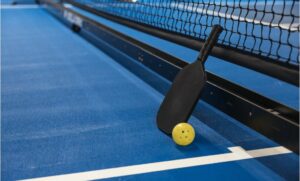Navigating the Rulebook: How Regulations Shape the Pickleball Experience

Pickleball has captured the hearts of millions worldwide, becoming one of the fastest-growing sports in recent years. This paddle sport, which combines elements of tennis, badminton, and ping pong, is known for its accessibility and ease of play. However, as pickleball courts pop up in communities across the globe, the game’s growth is accompanied by a set of rules and regulations that shape the pickleball experience.
The Genesis of Pickleball Rules
Pickleball, originally created in the mid-1960s, had simple rules in its early days. The founders, Joel Pritchard, Bill Bell, and Barney McCallum, designed it to be an inclusive and enjoyable game for all ages. However, as the sport gained popularity, it became evident that a structured set of rules was necessary to ensure fairness and safety on the court.
The Role of Local Governments
Local governments play a significant role in the regulation of pickleball. They decide where courts can be built, how many can be constructed, and whether noise ordinances apply. These decisions often stem from the need to balance the demand for recreational facilities with the concerns of local residents.
For instance, the choice of court locations may be influenced by zoning laws and community input. Residents may have varying opinions on the proximity of pickleball courts to residential areas, parks, or schools, and local governments must consider these factors when making decisions.
Safety First
Safety is paramount in any sport, and pickleball is no exception. Regulations governing the construction and maintenance of pickleball courts aim to minimize the risk of accidents. This includes proper court dimensions, net height, and surface materials. Local governments and sports organizations work together to ensure that courts meet safety standards.
Moreover, equipment regulations, such as the type of balls and paddles allowed in sanctioned competitions, are established to maintain consistency and fairness in the game. These rules not only contribute to player safety but also preserve the integrity of the sport.
Noise and Community Relations
Pickleball is known for its distinctive “pop” sound as the ball strikes the paddle. While this noise is part of the game’s charm, it can also be a source of tension in residential areas. Noise complaints from neighbors near pickleball courts have led to discussions about the hours of play and the use of noise-reducing equipment.
Local governments must strike a balance between promoting recreational activities and addressing noise concerns from residents. This delicate balance often involves dialogue between pickleball enthusiasts and local communities.
The Global Impact
Beyond local regulations, pickleball’s rise as an international sport brings another layer of rulemaking. International sports organizations, such as the International Pickleball Federation (IPF), are responsible for setting global standards and organizing tournaments that attract players from around the world. The IPF, in collaboration with national pickleball organizations, ensures that the rules remain consistent across borders.
you might also want to read Unveiling the Impact of Politics on Business Operations.
Conclusion
Pickleball’s incredible growth is a testament to its appeal as a fun, inclusive sport. However, as with any sport, rules and regulations are essential to maintaining its integrity and ensuring a safe and enjoyable experience for all. Local governments, sports organizations, and players must work together to navigate the rulebook, shaping the pickleball experience for generations to come. By striking the right balance between regulation and recreation, pickleball can continue to thrive as a beloved pastime worldwide.
